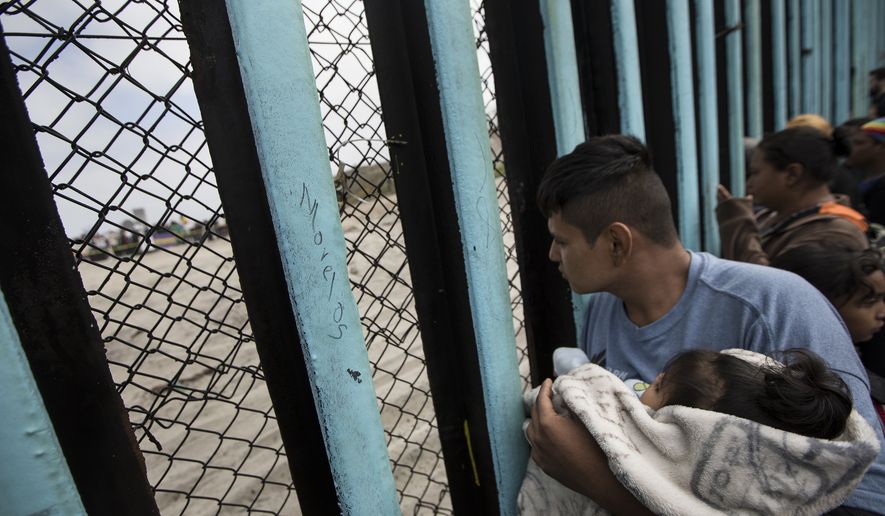The Border Patrol targeted the migrant caravan for enforcement but didn’t go after them because they were from Central American countries, the Trump administration said in new court filings this week meant to push back against accusations of illegal discriminatory prosecutions.
Border Patrol agents said they nabbed a total of two dozen people in the San Diego area who jumped the border and claimed to have been part of the caravan at some point.
Of those, 11 faced charges: two from El Salvador, two from Guatemala, one from Mexico and six from Honduras. The other 13 did not face charges, either because they were juveniles, were mothers traveling with their children, or, in one case, a woman who claimed to be eight and a half months pregnant.
Attorneys for the caravan participants had argued the administration was engaged in selective prosecution, targeting migrants from Central America while ignoring those from countries such as India who were caught alongside them.
The government countered that the key factor in its charging decisions was that someone was part of the caravan, regardless of country. While the caravan was mostly made up of people from Honduras, El Salvador and Guatemala, one of the prosecutions was against a Mexican who claimed to have been part of the caravan.
“At no point did Border Patrol target citizens of Central American countries for prosecution because of their nationality. To the contrary, Border Patrol sought prosecution of caravan participants with the objective of deterring other caravan participants from illegally entering the United States, while also taking into consideration humanitarian concerns,” Ryan Yamasaki, assistant chief patrol agent for the Border Patrol in San Diego, said in a declaration to the court.
The caravan has proved to be a test for the Trump administration.
The government said some 600 caravan members reached Tijuana by April 24 — far higher than the 150-person total caravan organizers had cited.
Faced with those numbers, federal officials had warned the migrants to present themselves for asylum claims at the official ports of entry, rather than to jump the border illegally. About 200 of the migrants followed those directions and began to be processed on April 30.
But others ignored the warnings and climbed the border fence anyway, the government said, and began to jump the border April 27.
Of the 24 people who were part of the caravan, two said they actually dropped out in Mexico City. Another one, the sole Mexican charged, said he was part of the caravan then later retracted that statement, saying he’d hoped to use the caravan as a diversion.
The fact that he faced charges proves there was no discrimination against Central Americans, the government argued in court briefs filed Monday evening.
The government said the point of prosecutions was to send a message to would-be asylum seekers in the caravan to enter the U.S. properly. Prosecuting illegal immigrants from India who weren’t part of the caravan wouldn’t have reinforced that message, the government said.
All told, the Border Patrol nabbed 232 people in the San Diego region that weren’t part of the caravan and who didn’t face prosecution between April 27 to April 29, Mr. Yamasaki said in his declaration to the court.
Since the caravan, Homeland Security has announced a full “zero tolerance” approach to the border, vowing to try to bring charges against every illegal immigrant apprehended. That could include even parents traveling with children, the government said.
• Stephen Dinan can be reached at sdinan@washingtontimes.com.




Please read our comment policy before commenting.